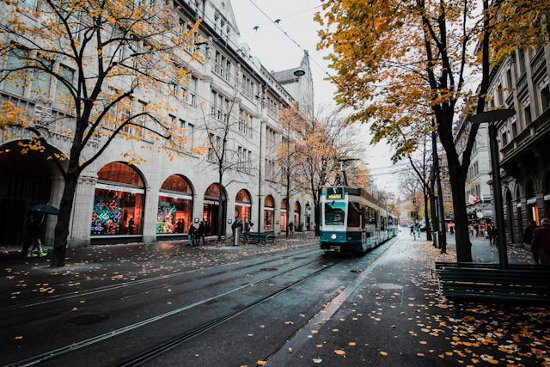Businesses play a crucial role in making travel in cities easy and convenient for their employees, clients, and visitors. By implementing effective strategies and leveraging available resources, businesses can contribute to reducing traffic congestion, improving transportation accessibility, and enhancing overall urban mobility. This article will explore various initiatives and measures that businesses can undertake to make travel in cities easy and seamless for everyone.
Provide Employee Transportation Services
In urban environments like New York City, businesses can greatly benefit from providing employee transportation services such as charter bus rental. By offering reliable and efficient transportation options, companies can alleviate the stress and logistical challenges associated with commuting in bustling city centers. If you are living in NYC, charter bus rental services in New York City not only facilitate convenient and comfortable travel for employees but also contribute to enhanced productivity and morale. Additionally, by outsourcing transportation needs to professional providers, businesses can streamline operations and focus on their core objectives without worrying about logistical concerns. Overall, implementing employee transportation services through charter bus rental can significantly improve the commuting experience and contribute to a positive work environment in urban settings like New York City.
Offer Flexible Work Arrangements
Businesses can also make travel in cities easy by offering flexible work arrangements, such as telecommuting or flexible hours. Allowing employees to work remotely or adjust their work schedules can help alleviate rush hour congestion and reduce the need for daily commuting. Flexible work arrangements also enable employees to avoid peak travel times, resulting in shorter and less stressful commutes. By giving employees the flexibility to choose when and where they work, businesses can promote work-life balance, increase job satisfaction, and improve overall well-being.
Promote Alternative Transportation Modes
Encouraging employees to use alternative transportation modes, such as public transit, biking, or walking, can significantly reduce reliance on single-occupancy vehicles and alleviate traffic congestion. Businesses can provide incentives, such as transit subsidies, bike racks, or shower facilities, to encourage employees to choose sustainable transportation options. Moreover, businesses can organize events, such as bike-to-work days or walking challenges, to promote active commuting and raise awareness about alternative transportation modes. By promoting alternative transportation modes, businesses can contribute to a healthier environment, reduce carbon emissions, and create more livable and vibrant cities.
Support Infrastructure Improvements
Businesses can advocate for and support infrastructure improvements that enhance transportation accessibility and connectivity in cities. This can include supporting the development of bike lanes, pedestrian-friendly streets, or improved public transit systems. Businesses can collaborate with local governments, transportation agencies, and community organizations to identify transportation needs and prioritize infrastructure projects that benefit both employees and the broader community. Moreover, businesses can invest in amenities such as electric vehicle charging stations or car-sharing programs to encourage the use of sustainable transportation options among employees and visitors. By supporting infrastructure improvements, businesses can help create more efficient, equitable, and sustainable transportation systems in cities.
Facilitate Remote Meetings and Events
Through the use of technology, organizations can allow remote meetings and events, hence eliminating the need for travel. Through the use of video conferencing platforms, virtual collaboration tools, and webinar platforms, employees can connect and communicate with their coworkers, customers, and partners from any location in the globe. Companies can decrease the amount of time and resources spent on business travel by adopting the practice of holding meetings and events remotely.
This minimizes the effect that businesses have on the environment. It is also possible for companies to reach a larger audience and develop global cooperation via the use of remote meetings, which eliminate the limitations that are imposed by physical distance. Because of the incorporation of remote work and virtual collaboration into their operations, companies can make traveling in urban areas simple and time-efficient for all parties involved.
Conclusion
In conclusion, businesses have a significant role to play in making travel in cities easy and convenient for employees, clients, and visitors. By providing employee transportation services, offering flexible work arrangements, promoting alternative transportation modes, supporting infrastructure improvements, and facilitating remote meetings and events, businesses can contribute to reducing traffic congestion, improving transportation accessibility, and enhancing overall urban mobility. By adopting these initiatives and measures, businesses can create more sustainable, efficient, and livable cities for everyone.













